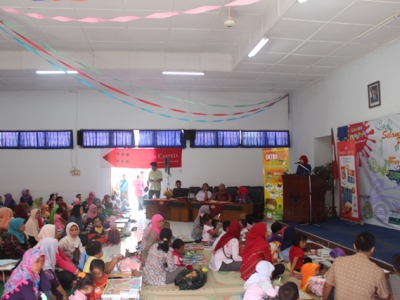Socioenterpreneurship : Non-formal Education Graduate Program to be the Leading One in Southest Asia

The graduate program of Non-formal Education of YSU socialized the new orientation of the study program as stated in the university vision and mission of 2025 (24/3/2014). Prof. Dr. Yoyon Suryono explained that the orientation of this study program is to be the leading one in the Southeast Asia, strengthening the capabilities, creating the holistic study program, and employing people to be autunomous, pious, and intellect.
In Indonesia, the study program of Non-formal Education is only offered by Indonesian University of Education, Semarang State Univeristy, Malang State University and Surabaya State University but the recent demand on the number of educators and education personels is increasing.
In the undergraduate level, the study program is to develop and manage strategic programs. For the graduate program, Non-formal education is to develop innovative programs and the doctoral program is to develop expertise in non-formal education.
Thw non-formal education department conducted socioenterpreneurship programs in some areas namely education for very young learner, life skills, literacy, equality, woman empowerment, youth movement, and work skills and training.
Sumarno, Ph. D believes that socioenterpreneurship may be the new power in education and national establishment. He emphasized on the importance of proliferation of problems and life challanges, life involution, economical approach, needs of unconventional innovations, social approach and socioenterpreneuship-based education.
In free market, the transition of multidimensional problems happens, such as social gaps, anxiety, human trafficking, global warming, natural disasters, misuse of knowledge, information technology and drugs consumption. Complicated problems are not balanced by the improvement of the quality of life. Moreover, schools cannot solve all the problems so that non-formal education can take part to give better solution for people.
“Our challenge is time. We have to pace faster as the problems are increasing ,” he said.
He worried that the new kind of involution occured as indicated by increasing life complications which are not followed by the increasing benefits, high living cost, alienation, and deviation done by individual or groups. It results to the lag, frustration, and paranoid.
He emphasized on the importance of education which is based on socioenterpreneurship, the innovations of social approach collaborating with economical approach structurally and culturally, especially social values and social capital for people’s prosperity. (Rb/fe)

